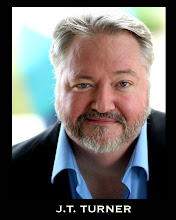 Have you ever played or observed video games? Well of course you have. One thing you will notice if you look for it is that programmers often make sure characters that are never still. They are always pulsing, moving slightly, almost bouncing in some cases. I was working on some stage combat with a great teacher named Tony Wolf who had worked on some video games, (and also worked on fight scenes for Lord of the Rings), and he called this slight activity made by characters Random Movement. I especially think of older warrior games, where supporting characters literally look like they are panting as they pulse up and down.
Have you ever played or observed video games? Well of course you have. One thing you will notice if you look for it is that programmers often make sure characters that are never still. They are always pulsing, moving slightly, almost bouncing in some cases. I was working on some stage combat with a great teacher named Tony Wolf who had worked on some video games, (and also worked on fight scenes for Lord of the Rings), and he called this slight activity made by characters Random Movement. I especially think of older warrior games, where supporting characters literally look like they are panting as they pulse up and down.Now in stage combat, this Random Movement has some appeal. A fighter often shows they are ready to fight, anxious to fight by using some random movement. Actually in the case of stage combat, it is not so random, it is a choice made by the actor/combatant.
But where Random Movement does not belong is on stage or at an audition! Oh and singers or speakers in our readership, this goes for you as well. So often when auditioning, I see an actor that has a good piece chosen to act, a good voice, and yet all of that is ruined by what I often call dancing. They shift weight from one foot to another constantly, swaying, or step forward and back during the piece. Sometimes it looks like they are doing a box step! And of course most dreaded of all, and a malady only women seem to have, is ankle cracking! That's is where your weight is on one foot, and you bend sideways at the ankle with the other foot, making your ankle look like it will crack to the side.
A recent example; a young student of mine was preparing for an audition. She was working on a monologue from Shakespeare, spoken by Helena (How happy some o'er other some can be....). She is a good actress, and with some coaching was doing a awesome job. But one issue was movement. She had some of the dreaded Random Movement, at one point she took a step forward and looked like she was about to take another, and just held there for a minute, looking like she would jump forward at any time. She also leaned back and for some reason dug her toe into the ground. When I stopped her and asked why she was doing this, she didn't even realize she was doing it! That is what happens with this type of movement, it is often an unconscious habit, a BAD habit. It is not what the character would do, it's what your nervous inner self wants to do. And if I am auditioning you for a role, I am distracted by your Random Movement.
So what to do? First, be aware of this sort of movement. As you work on your audition piece, or a song, scenes or speech, be aware of your body and what it is doing. If you notice bad habits you can often stop them. But better yet, plan some specific movement into your audition piece or work. Don't just start a step and stop, take a full step. Make it an active choice when you move. Typically the best times to move is when what you are saying changes, goes from one train of thought to another, or when a pause for effect makes sense. That is the time to take a step or two, or re-angle your body. Keep it simple and specific, move on a particular word, sentence or pause. Only use nervous motion if the piece calls for it, and even then, plan it into the piece.
Now I know that many actors will take exception to what I have said here. Many acting teachers and styles tell you to be true and organic, let the movements come as they may. And it could be that for you that works. But for most actors, especially ones that are nerved up and adrenaline filled, following your impulses will result in the worlds worst interpretive dance. So start with structure, then, as you get comfortable, by all means relax and make the movements you PLAN be as natural as possible.
JT- The Actors Sensei







No comments:
Post a Comment